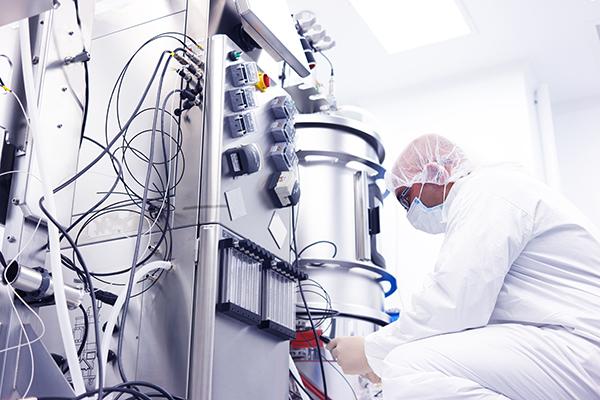Controlling Manufacturing Variability
Another challenge is controlling variability inherent in biological manufacturing processes. Even slight differences in how cells are manipulated, cultured or formulated can result in different therapeutic effects. Manufacturers are implementing advanced quality control systems with real-time monitoring, process analytical technologies and digital documentation to tighten variability between batches. Machine learning algorithms are helping analyze trends in manufacturing data to optimize conditions and ensure consistency of critical product attributes. Cell-line engineering is also being used to generate clonal modified cell lines with reproducible phenotypes to reduce run-to-run variability. With improvements in standardizing material inputs, monitoring product quality attributes and controlling environmental conditions, manufacturers aim to manufacture cell therapies with reliably uniform bioactivity, safety and purity.
The field of Cell Therapy Manufacturing has shown incredible promise in treating various diseases. However, manufacturing the actual cell therapy products at scale in a consistent and cost-effective manner has remained a major challenge. As cell therapies transition from clinical trials to commercial products, robust and reliable manufacturing processes will be key to delivering on the potential of these revolutionary treatments.
Introduction of Advanced Manufacturing Techniques
To meet industrial-scale demands, cell therapy manufacturers are exploring novel manufacturing technologies beyond traditional stirred-tank bioreactors. Microfluidic biochips encapsulate and culture cells in biologically optimized microenvironments that mimic in vivo niches. This enhances cell expansion rates and product quality. Continuous manufacturing configurations like perfusion bioreactors provide non-stop harvesting of highly viable cell products without interrupting production cycles. Three-dimensional bioprinting and tissue engineering techniques allow manufacturing of complex living tissues, organs-on-chips and advanced cell delivery constructs. Use of cell culture media with defined additives rather than animal/human derived components cuts variability and improves reproducibility. Automated closed-system technologies like robotic arms eliminate manual handlings and reduce contamination risk. Overall, such advanced techniques aim to achieve higher manufacturing efficiencies while maintaining consistency of cellular outputs.
Addressing Challenges of Personalized Autologous Therapies
For autologous therapies derived from a patient's own cells, each manufacturing process is personalized and complex. Any deviation in upstream cell collection, isolation or downstream culture protocols could lead to changes in product quality. Managing customized workflows at commercial scales poses significant challenges. Decentralized network models utilizing regional processing facilities situated closer to patient populations could help shorten manufacturing timelines. Many companies are developing "off-the-shelf" allogeneic cell therapy products that can treat broader patient segments more efficiently. By engineering cells to evade immune detection, such therapies avoid custom manufacturing per patient and offer "plug-and-play" convenience. However, regulatory concerns remain about long-term safety and efficacy of permanently modified cell lines. Overall, advances in both autologous and allogeneic manufacturing platforms will determine business feasibility and access to cell therapies.
Regulatory Requirements and Supply Chain Management
For commercial launches, cell therapy manufacturers must establish complex supply chains and distribution networks fulfilling stringent regulatory requirements. Partnerships are being built with CDMOs, suppliers and logistics companies to coordinate raw material sourcing, manufacturing batch tracking, quality testing, cold chain storage/transportation, facility/process validations and pharmacovigilance programs. Real-time monitoring of critical supply and quality parameters ensures adherence to prevailing regulatory guidelines like cGMP, cGTP and ICH standards. Process analytical technologies enabling full digital tracability are key to meeting stringent regulatory mandates such as proof-of-consistency. Governments are supportive by providing funding and guidelines to streamline regulations for cell therapy products as new. Overall, robust quality systems grounded in regulatory principles will be imperative for reliable, accessible cell therapy manufacturing.
Future Outlook
Overall, cell therapy manufacturing has made immense progress but still has a long way to go. Dedicated CMC facilities, advanced technologies, standardized workflows, machine learning integration and network models hold promise to solve challenges around scale, costs and customized treatments. Continuous innovations will be necessary to further optimize manufacturing platforms. Further successes in commercialization will unlock the transformational potential of cell therapies to treat cancer, genetic disorders and numerous other diseases currently lacking effective therapeutic options. With ongoing developments, cell therapy manufacturing may revolutionize healthcare by enabling widespread access to curative living medicines tailored for individual patients.
In conclusion, this article discussed some of the major developments and ongoing efforts in the evolving field of cell therapy manufacturing. By addressing challenges related to scale-up capacity, variability control, process innovations, customized treatment models and rigorous regulatory compliance, emerging technologies and infrastructure models show promise to transform cell therapies from a laboratory prospect to mainstream medical solutions. With coordinated efforts across industry, government and academia, the future of cell-based manufacturing technologies appears brighter than ever to fulfill the healing potential of these revolutionary living drugs.
Explore more related article on this topic: https://www.trendingwebwire.com/cell-therapy-manufacturing-developing-advanced-therapies-to-treat-disease/
For More Insights On This Topic: https://captionssky.com/footwear-sole-materials-an-analysis-of-modern-trends-and-future-outlook/



